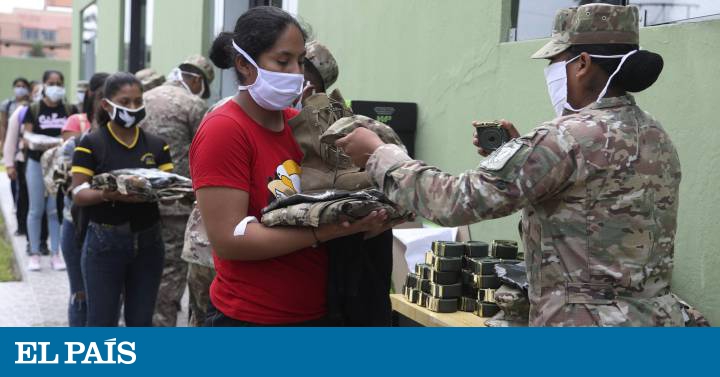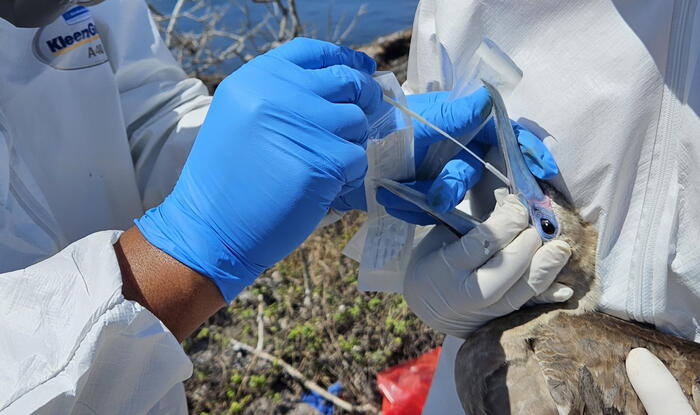The Covid-19 has been traveling fast since late last year. Raised in millions of tourists and expanding, first, to the USA and Europe and, later, to the rest of the world. At the beginning gradually and imperceptibly; then exponentially, until the WHO declared it a pandemic on March 11 - less than a month ago - when the number of infected was "only" 118,000 people and the number of deceased, 4,291. With more than a million infected people and 50,000 deaths at the time of writing, the world has built new frontiers and is becoming unrecognizable.
From a globalized world with borders in dilution, in the blink of an eye, we have passed to another in which the isolation, the rule and the ban of all cross-border travel is the new standard. And, along with this, generalized emergency measures within the countries which, under different names, restrict rights and grant special powers to executive powers to deal with the pandemic. And, in this context, an economic collapse that generates massive unemployment.
All of this is understandable. Extraordinary powers that in some countries are being used correctly and efficiently. I give as an example what I am aware of and I am living in my country, Peru, the first Latin American country to have timely and effective isolation measures that have so far “flattened” the curve of increase in new cases and deaths. Also, due to the significant fiscal resources already invested in addressing the social effects of the pandemic.
However, if, in general, it has acted on the basis of legality and legitimacy, threats to democratic rights are also being presented, either for authoritarian purposes or for indifference. Three issues are particularly striking.
First, generalized states of emergency that are fertile ground for some, "fishing in a troubled river", to hoard and concentrate power, obscuring democracy and citizen rights. And projects, for example, for the legitimation - and later use - of digital means of monitoring the location and state - physical and emotional - of individuals. Or authoritarian decisions already in development of gross accumulation and concentration of power using the "extraordinary" of the situation. It is visibly what is already happening in Hungary where it is now Prime Minister Víktor Orban who governs; by decree and without parliament.
Second, the danger of trapping the functioning of democratic institutions given the prevailing objective conditions. Delicate balances and great clarity of democratic objectives are urgent and indispensable so that the functioning of the judicial system, that of Parliament and that of local governments is not impeded - or hindered. There are technical and regulatory responses for institutions to function in isolated conditions.
In the judicial sphere, the use of the “electronic file” (which already works in several countries) can and should be accelerated, for example. Since this may be a medium-term goal in many institutions, the fact is that many actions, proceedings, and court hearings can be conducted using digital communication. Especially if the liberty of persons or other constitutional rights are at stake.
The operation of parliaments, on the other hand, should not be impeded either. It is not objectionable that in an emergency situation like the present one, the functions and capacities of action of the executive powers are strengthened. But this cannot cancel the parliamentary function. Digital communication is available and is a means that must not only be “tolerated” but encouraged so that the legislative powers can function. The space of local powers is also fundamental, but probably the most complex, as they do not always have the necessary technological and budgetary resources. They are the fundamental connecting link between state / government aid and people living in poverty and extreme poverty, so interconnection is essential.
Third, to paraphrase the title of Luis Buñuel's film, The Forgotten : People Deprived of Liberty. They are under the direct responsibility and attention of the State and are a particularly vulnerable group due to the overcrowding conditions prevailing in detention centers.
Let's look, for example, at Colombia and Peru. In the first, the prison population is 121,297; the capacity, for 80,763 (50.19% overcrowding); in Peru, the prison population is 92,300 and the capacity is 39,300 (134% overcrowding). Overcrowding and hygiene conditions are obvious breeding grounds for the spread of the virus. Unfortunately, it does not usually generate great “social sympathy” in societies gangrenous with insecurity.
In the current conditions of prison emergency it is urgent to study and grant pardons to people who are about to serve their sentences and have not committed blood crimes. The deportation of foreign prisoners (who should be in their countries). And, thus, other categories that are considered relevant that should be part of an immediate "decompression" of penal centers before serious acts of violence in the current context must be regretted. In Peru, the president of the Constitutional Court has publicly requested that pardons be granted, recommending an ad hoc commission to study each case so that people who pose a risk to society do not benefit from it.
You can follow EL PAÍS Opinion on Facebook, Twitter or subscribe here to the Newsletter.










/cloudfront-eu-central-1.images.arcpublishing.com/prisa/2C5HI6YHNFHDLJSBNWHOIAS2AE.jpeg)



